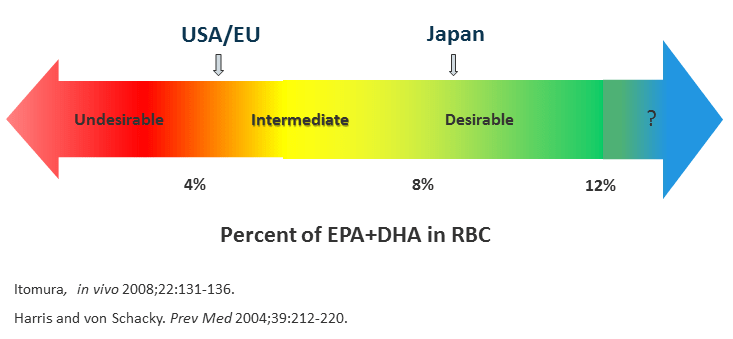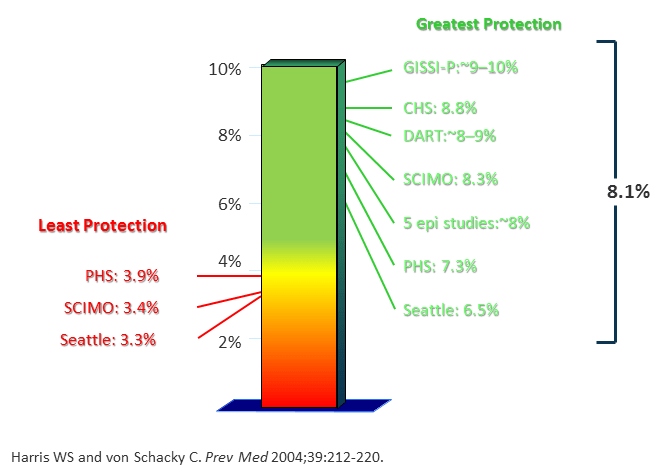Published on June 1, 2017
Omega-3 deficiency is a fast-evolving global health concern. It can lead to a higher risk of chronic disease, particularly heart disease, cognitive decline, and other health problems.
Two very important omega-3 fatty acids are EPA (eicosapentaenoic acid) and DHA (docosahexaenoic acid); individual levels vary across the globe, with most countries and regions having levels that are considered low to very low (such as the USA in the image below).

Over 23,000 published research papers support positive health benefits of high omega-3s, with more than 6000 supporting cardiovascular benefits, over 1000 showing respiratory benefits, and more than 2000 showing a benefit to diabetes conditions. Hundreds of studies suggest that omega-3 may provide benefit for a wide range of diseases, including asthma, depression, ADHD, autoimmune diseases, and cancer. Higher omega-3s have been associated with improved cognitive function, lower risk of dementia, longer life, and a reduced relative risk for death from any cause. They are beneficial for normal vision, anti-aging, skin health, maternal health, immune system, brain health, heart health, normal liver function, joints and muscles.
The typical diet for most individuals, up to 80-90% in some countries, does not provide enough EPA and DHA to provide these benefits, leaving a majority of the population deficient – with most countries and regions around the globe having Omega-3 Index levels that are considered low to very low.
In studies using a measurement called the Omega-3 Index test, individuals with a low Omega-3 Index were shown to have a 10-fold higher risk of death compared to those with a high index. The Omega-3 Index records the percentage concentration of omega-3s EPA and DHA in red blood cells. An Omega-3 Index between 8% and 12% was associated with lower risk for death from cardiovascular disease, versus an index less than 4%.

A Call to Action has been issued to alert the public to the importance of omega-3 fatty acids, through education, awareness, and measurement; enabling individuals to monitor their own health outcomes in relationship to their Omega-3 Index and omega-3 intake. Given the current data, the D*action+Omega-3 nutrient field trial will use the Omega-3 Index as the tool of measurement for omega-3 status, tracking specific levels and correlations to the incidence of specific health outcomes, including resulting vitamin D serum levels. The aim will be to enable participants to learn how their own Omega-3 Index correlates to their own health outcomes and that of others. Implementing this test is demonstrably safe and easy. Changing the diet with foods or supplements can allow participants to change their index levels.
The D*action+Omega-3 project has as its purpose to serve as a model for public health action on omega-3s and vitamin D. It is a test bed for techniques, and for providing outcome evaluation at a community level and achieving health independence at an individual level.
Be a force for change in your health and the health care system… Join the new GrassrootsHealth nutrient field trial: D*action+Omega-3

